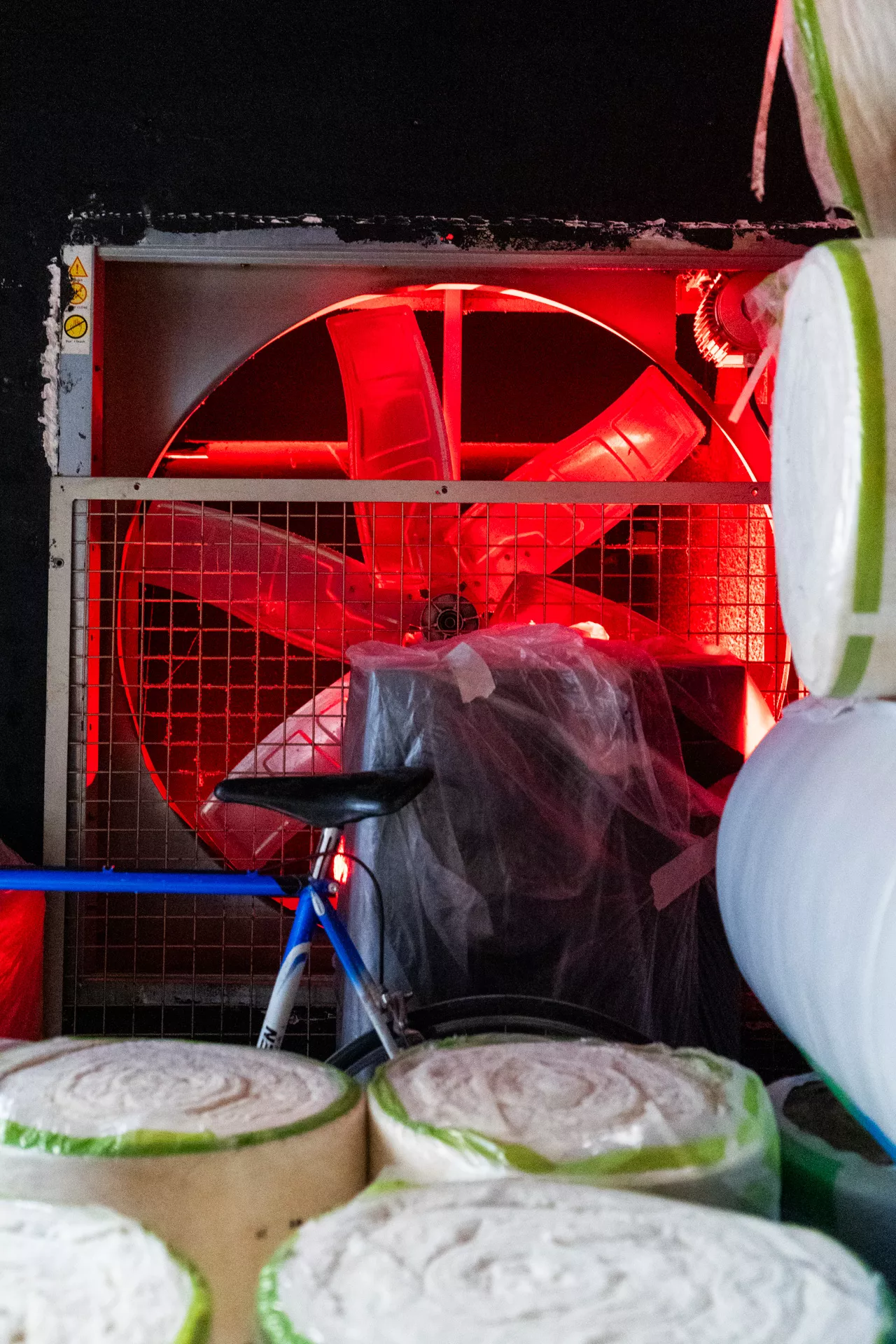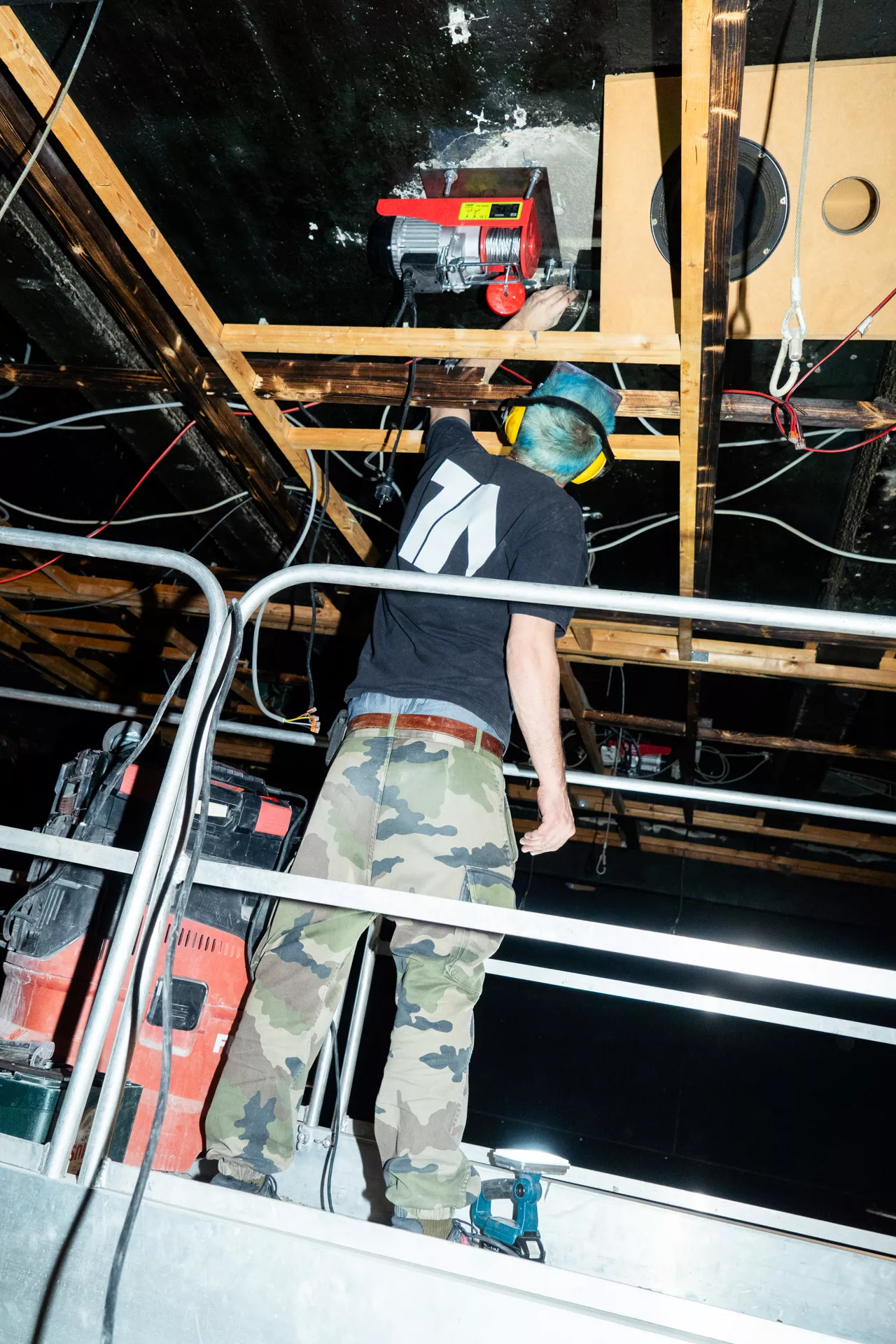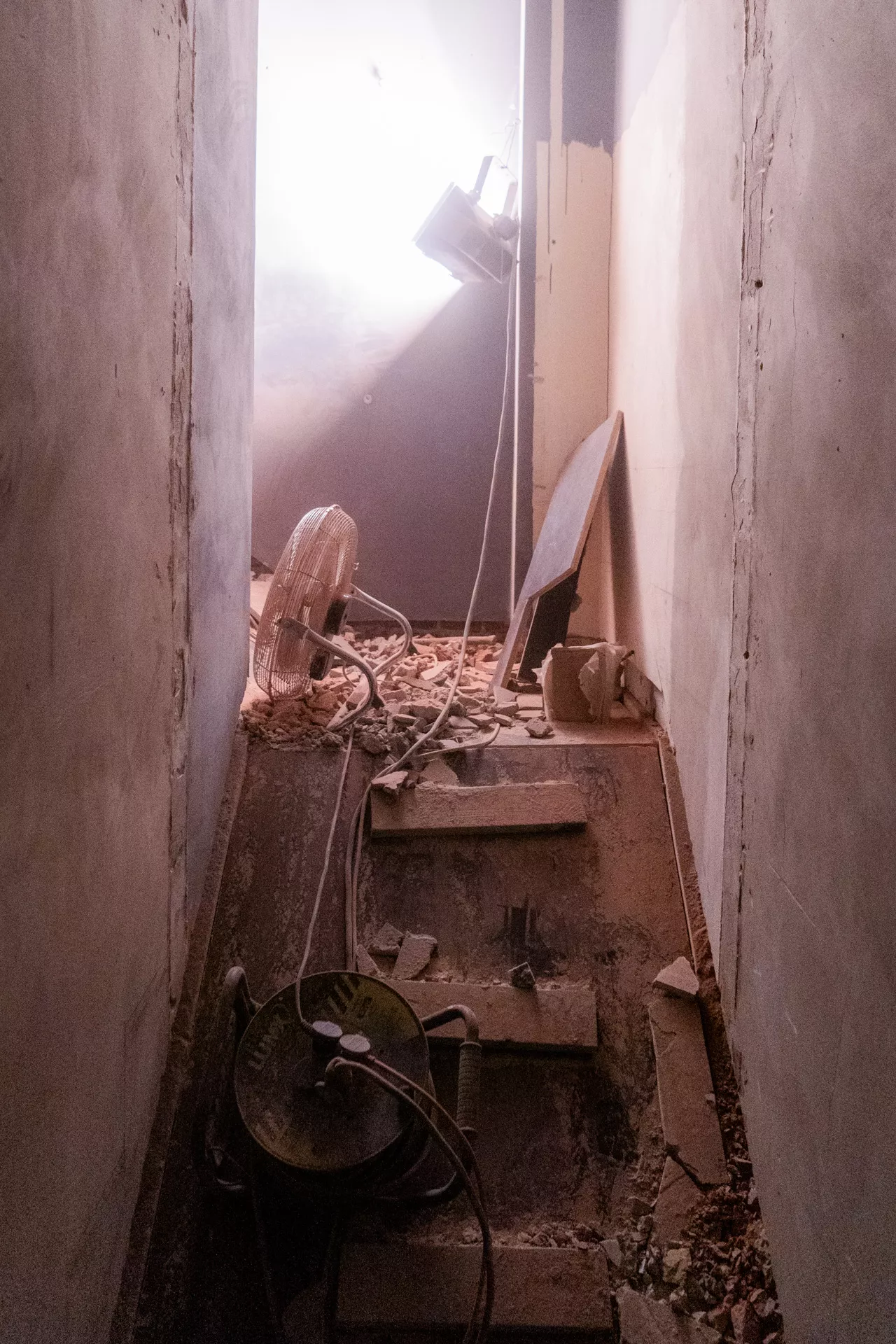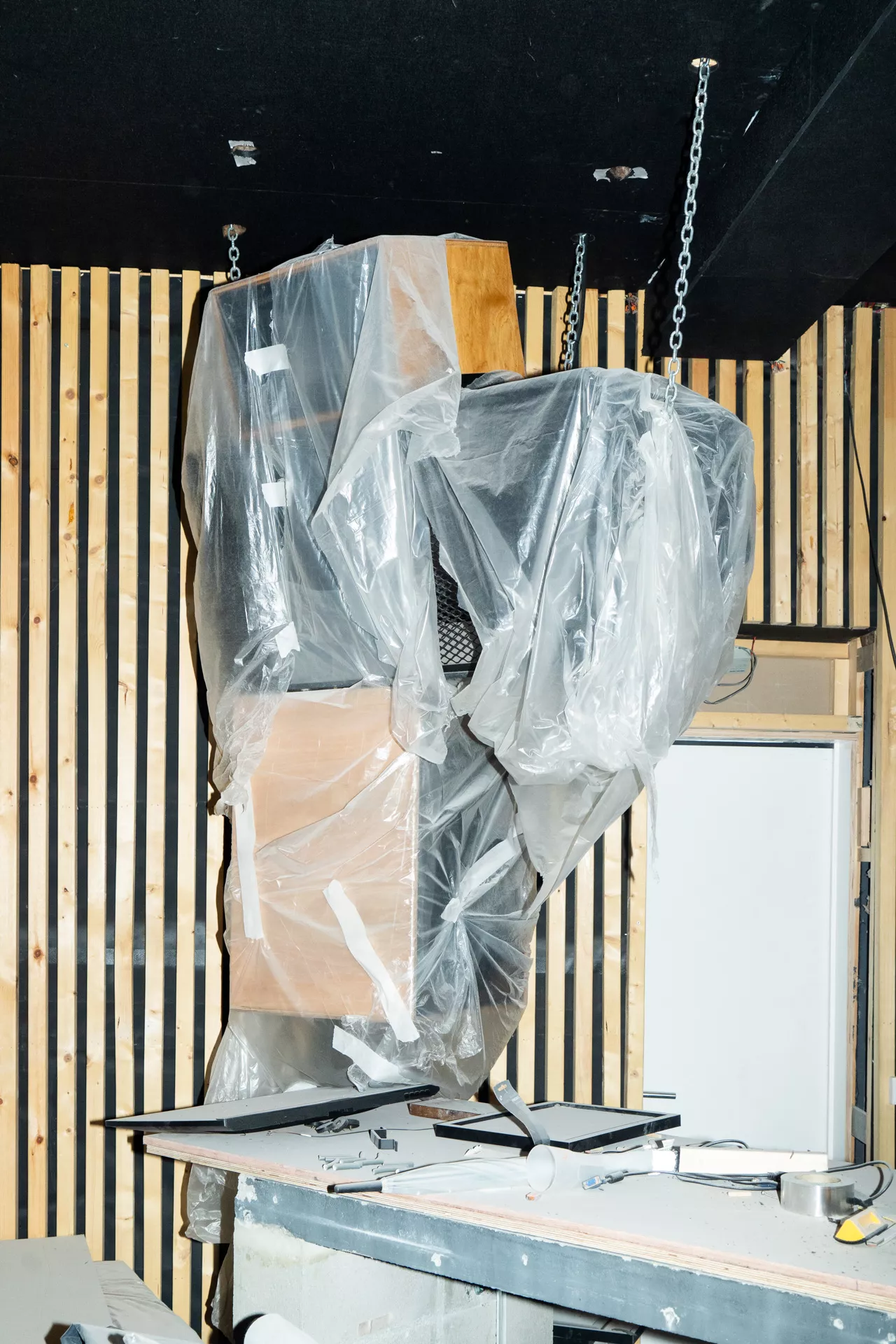With a career spanning over three decades, Renaud Deru stands as one of the most enduring figures in Brussels’ nightlife. A quiet architect of the city’s sonic evolution, his track record reads like a who’s who of seminal spaces and scenes—Dirty Dancing, Libertine Supersport, Jalousy, Sono Ventura… the list goes on. His latest chapter is Umi, where he now curates Saturday nights in a venue revered for its heavyweight sound system.
Ahead of the Listen Festival night at Umi—with John Talabot, Eris, and an after party with Walrus until Sunday afternoon—we sit down with Renaud to talk past legacies, present visions, and the future of Brussels after dark.


I’ll be taking over Saturday nights at Umi, which we’re rebranding as BLUR, under the wider Umi umbrella. I'm bringing a bit of the experience I've built up managing clubs over the past 25 years.
Dear Renaud. The news is still hot off the press. What’s going on between you and Umi?
I’ll be taking over Saturday nights at Umi, which we’re rebranding as BLUR, under the wider Umi umbrella. I'm bringing a bit of the experience I've built up managing clubs over the past 25 years. It’s a venue with a lot of potential, so I’m contributing my vision and know-how to help shape things in different areas. That’s also led to some transformations of the space, which we’ll reveal on the opening night.
There are some pretty incredible elements, things that haven’t really been seen in a club setting before. For example, we’re working on something special with the downstairs room’s structure that will let us create real moments of tension and release. You’ll just have to pass by to discover it and feel it.
What’s the artistic direction you’re planning to bring to BLUR?
The idea is to keep things clear and focused—the downstairs room will lean towards deeper shades of techno. But I’m also leaving plenty of room for flexibility. That means we could easily have a live electro set one night, or an all-night-long session from a Detroit house legend the next. It’s all on the table.
And then the upstairs room, the studio that everyone already loves—we're improving it as well, not in terms of sound because it's already perfect, but we're adding a few tweaks. In this case, we're moving the bar to slightly enlarge the dancefloor. Let’s say it’s going to be more of a dedicated laboratory. Musically, we’ll really be able to explore—from disco to new wave, deep house, electro, even down-tempo at times, and maybe even a bit of hip-hop occasionally.
There’s also a third, more hidden room that we’re opening—something a bit more secretive and less visible. It’ll be fully dedicated to chilling, a tucked-away zone that might evoke the feel of classic backroom concepts.






What’s the story behind UMI?
Before it was taken over by the current team and became UMI in 2023, the space was home to a club dedicated to techno and hard techno called Zodiak. I don’t know much about what the space was used for before.
You know what’s interesting about Umi? It’s one of the few venues that is led by a woman, Daria de Troostembergh. I hope it can serve as an example or a source of motivation for others to take on this kind of challenge.
Where does UMI stand in Brussels' nightlife landscape today?
In Brussels, you generally get two types of venues: smaller, more intimate club spaces or discobars, and then the big institutions like Fuse or C12, where you're instantly talking crowds of 1,500. UMI sits right in between, with a capacity of about 700. That sweet spot gives us the freedom to curate a very specific vibe.
What I’m aiming for with BLUR is a strong focus on DJ culture—bringing in artists who are genuinely great selectors and know how to move a dancefloor. I’m not interested in booking big-name producers who can’t actually DJ. For me, it's all about that deeper knowledge and connection to the art of the set. I’ve never been about chasing names just to sell tickets. That’s not the point.
The sound system at UMI is already gaining a bit of a legendary status. What’s the story behind it?
Honestly, the sound system is the main reason I took on this project. It’s exceptional, truly custom-built by my producer, Nathan Aerts. He’s not only a sound engineer but also a system builder, someone completely obsessed with sound in the best possible way. UMI is basically his laboratory. We’re lucky to have two rooms that are both equipped with top-tier audio setups. The system has become the star of the club. Eventually, It’s the club itself that should be the headliner, more than the Djs.
Honestly, the sound system is the main reason I took on this project. It’s exceptional, truly custom-built.






How did you get your start in nightlife, nearly three decades ago?
My very first party was called Movida Social Club. I was working at the time with Gilles Decuyper—a bit of a legendary figure in the Brussels scene—who used to play under the name Plastic Soul Orchestra. The party took place on a boat docked along the canal in Brussels. To get in, you had to call an answering machine, leave your name, and that would get you free entry to the night.
We also opened a record store together back then. I had just finished school and opened a video rental shop. And in the garage behind the shop, we set up a tiny record store—just some crates of vinyl. We were only open on Sunday evenings, which turned out to be perfect. A lot of DJs, often still in afterparty mode, would come by to dig. That little spot became a meeting point and introduced me to so many people from the scene. Looking back, that whole experience was really foundational for me. It’s where I had my first real taste of underground electronic music and where I could gain experience as a DJ myself.
After that first chapter, I stepped away from the project to focus on something new with a different crew—a small club night called Blow Up. We hosted it in an old jazz club called Athanor Studio, tucked away in a basement right in the heart of Brussels’ Îlot Sacré. Every Friday night, we’d set up turntables on the grand piano. I teamed up with Mandrak, who I had met through the record store.
We booked some incredible guests—guys like Daniel Wang and Morgan Geist. We were actually the first to bring them over back in the early 2000s. Blow Up ran for about a year, maybe two, I don’t remember exactly.
From there, I started thinking a bit bigger. Around the time 2manydj’s released their As Heard on Radio Soulwax Pt. 2 mix, I felt like something was shifting—there was an opportunity to do something major. So I took a leap, rented out Mirano, and started inviting a new wave of DJs. James Murphy from LCD Soundsystem even came to play a DJ set. That night was massive—nearly 2,000 people showed up. It was a huge success.
At the time, Mirano was pretty much abandoned—it had lost a bit of its former glory. There were no club nights happening anymore, it was just an empty venue available for rent. After the success of that first party, I was approached by Lorenzo Serra, who was working with Mirano back then. That’s how we created Dirty Dancing. Our first international guest was Ivan Smagghe, and from there it just kept growing. The night ran for six years and was a real success, I genuinely believe it marked a generation. I’ve even played at weddings for people who met at Dirty Dancing back in the day. And still, to this day, I sometimes get asked to play Dirty Dancing-style sets.


Can you name some of the DJs that played at Dirty Dancing?
We had artists like Brodinski, and then came the whole early wave of the French Touch—Justice and the like. Sometimes we’d lean into trends early, trying to be a bit ahead of the curve. Other times we went all in—like with Tiga’s rise, and Felix Da Housecat, who was even a resident at Dirty Dancing for a time. We had Laurent Garnier all night long, and legends like François K. That one still feels mythical to me—François K played an eight-hour-long set and introduced me that same night to Florian Schneider from Kraftwerk, who he’d brought along to the club. I ended up spending the night hanging out between those two. I was 24 at the time, it was surreal.
What happened after Dirty Dancing?
That whole chapter ran until 2009. After that, we moved things to K-Nal, a venue by the canal and launched Libertine Supersport, together with Lorenzo Serra and Benoit Vano. The parties took place in the space that’s now known as K1, where Listen Festival is also hosting two nights this year.
That venue had two rooms, so we booked loads of artists we loved. We had Maceo Plex early on, Solomun too—back when he was still playing interesting stuff. We did a lot of live acts as well: Pony Hoax, Arnaud Rebotini, and many more.
But that experience also taught us just how hard it is to make a club financially sustainable. Not many people know this, but even though Libertine Supersport was a success in the eyes of the scene, none of us ever got paid for those two years. We covered everyone else—artists, staff, crew—but there just wasn’t enough left to pay ourselves. Eventually, we had to stop. We needed to make a living. It’s not something people talk about much, but that’s the reality. Libertine Supersport was a beautiful project, one that meant a lot to a lot of people—but behind the scenes, it was incredibly tough financially.






And if that wasn’t enough, on top of curating line-ups, you also curate vinyl—through your shop Sono Ventura, right?
During Covid, I really had to refocus and ask myself what truly mattered to me. I had this stash of records sitting in my parents’ garage—some of it dating back to the record shop I had in the late ‘90s. And I thought, why not get back into that? So together with a few friends, we launched Sono Ventura in the heart of the Marolles in Brussels.
It’s been four years as of this June, and honestly, I’m totally passionate about it. For me, the goal with Sono Ventura is to pass on some of the knowledge I’ve built over 30 years in electronic music, to connect with a new generation. And it’s beautiful to see their reactions when they hear something they think is completely fresh, only to find out it dropped in ‘93.
So yeah, I guess I’ve become a bit of a musical tonton to this new wave. I try to build the shop with other people who are just as passionate—people who care deeply about the music, and who bring that energy into the space.
Well, thank you tonton!